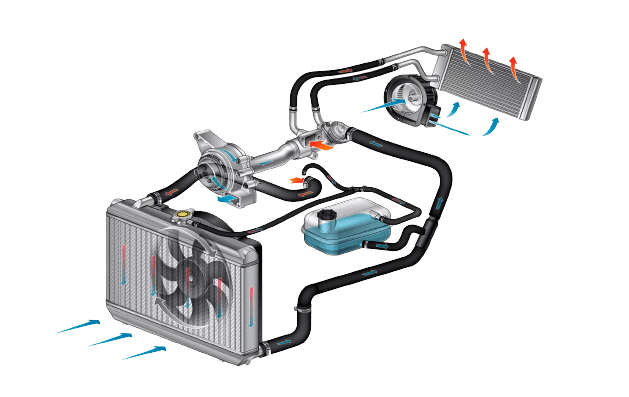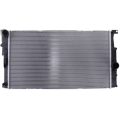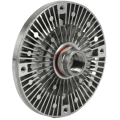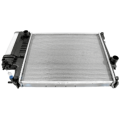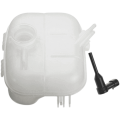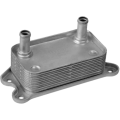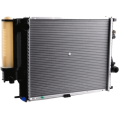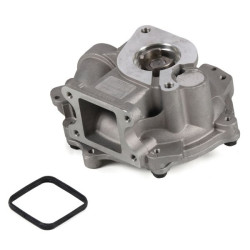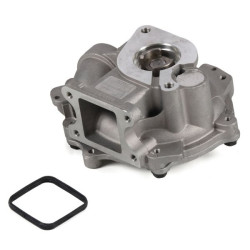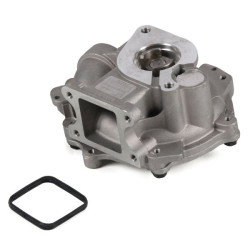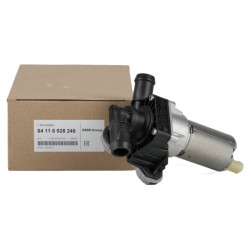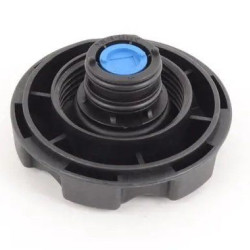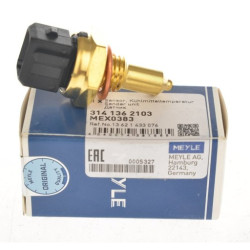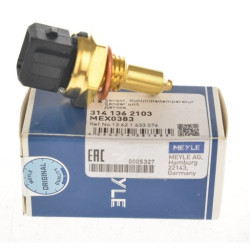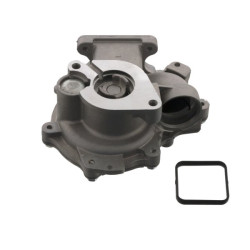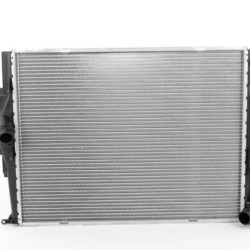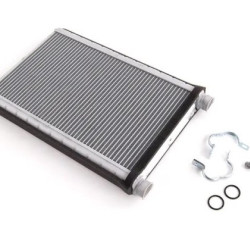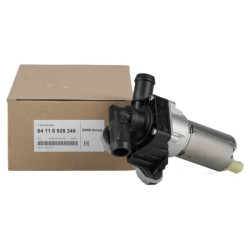BMW Heating and Cooling System
The Heating and Cooling System is the entirety of the heating and cooling systems found in vehicles. Radiators and Heaters are included in this system.
BMW Engine Heating, Cooling, and Interior Cabin Heating-Cooling Systems: Parts and Historical Development
BMW's engine heating and cooling systems enhance performance and durability by ensuring the engine operates at optimal temperature. Similarly, the interior cabin heating and cooling systems maximize driving comfort. In this article, we will examine the parts used in BMW's engine and interior cabin heating-cooling systems and the historical development of these systems.
Engine Heating and Cooling Systems
BMW engine heating and cooling systems consist of a series of components to ensure the engine operates efficiently and reliably. Here are the key parts used in this system and their features:
Radiator: The radiator prevents the engine from overheating by cooling the engine coolant. BMW radiators are made from lightweight and durable materials like aluminum, which provide high thermal conductivity.
Thermostat: The thermostat maintains the engine's ideal operating temperature. When the engine is cold, the thermostat remains closed to allow the engine to warm up quickly. Once the engine is sufficiently warmed, the thermostat opens and allows the coolant to flow through the radiator.
Water Pump: The water pump circulates the coolant within the engine, providing effective cooling. BMW water pumps are typically made from high-quality materials for durability and efficiency.
Fan: The fan increases airflow through the radiator, enhancing cooling performance. Electronically controlled BMW fans automatically engage based on engine temperature.
Coolant: A specially formulated coolant is used to prevent engine overheating and corrosion. BMW coolants provide long-lasting protection and high performance.
Interior Cabin Heating and Cooling Systems
BMW's interior cabin heating and cooling systems consist of various components to ensure the comfort of the driver and passengers. Here are the key parts used in this system and their features:
Air Conditioning Compressor: The air conditioning compressor initiates the cooling cycle of the air conditioning system. BMW compressors are designed for high efficiency and low energy consumption.
Condenser: The condenser allows the refrigerant gas to condense into a liquid state in the air conditioning system. BMW condensers offer high heat transfer efficiency.
Evaporator: The evaporator cools the air inside the cabin. The refrigerant gas evaporates in the evaporator, lowering the temperature and blowing cold air into the cabin.
Heater Core: The heater core heats the cabin air using the engine coolant. This component heats the air inside the cabin using the temperature of the coolant, providing a comfortable driving environment.
Control Unit: The electronic unit that controls the operation of the air conditioning and heating systems. BMW control units precisely adjust temperature and airflow to provide optimal comfort.
Historical Development
BMW's engine and interior cabin heating-cooling systems have seen significant developments over the years:
Early Years (1970s and Earlier): In the early BMW vehicles, simple mechanical thermostats and manual controls were used. Cooling systems were generally simpler and less efficient.
1980s: With the introduction of electronic controls and more sophisticated thermostats, BMW engine cooling systems became more efficient. Air conditioning systems also began to become common during this period.
1990s: BMW enhanced engine performance and cooling efficiency with innovations such as variable valve timing (VANOS) and electronic engine management systems. Advanced features like automatic climate control were introduced in interior cabin heating and cooling systems.
2000s and Beyond: Modern BMW vehicles are equipped with advanced electronic control systems, high-efficiency radiators, air conditioning compressors, and other components. By using environmentally friendly refrigerants and energy-efficient technologies, both engine performance and driving comfort have been optimized.
Conclusion
BMW's engine heating, cooling, and interior cabin heating-cooling systems are critical components that enhance vehicle performance and driving comfort. Produced using high-quality materials and advanced technology, these systems ensure that the engine and interior cabin remain at ideal temperatures. Historically evolving continuously, these systems have been further improved and optimized with BMW's engineering expertise in every generation of vehicles. This ensures that BMW vehicles offer superior performance and comfort.
 Türkçe
Türkçe
 English
English
 Русский
Русский

